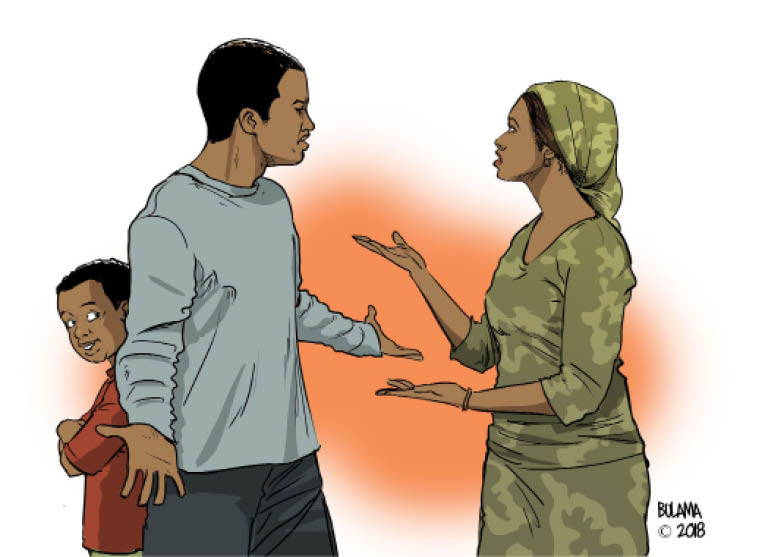Child discipline: Should couples be at loggerheads?
The Yakubus are a family of five, including their three children, who live in one of the satellite towns of Abuja. They are a bit comfortable and the children attend one of the best schools around. People in the neighbourhood describe them as a lovely and peaceful couple, except for their immediate neighbour who knows […]

The Yakubus are a family of five, including their three children, who live in one of the satellite towns of Abuja. They are a bit comfortable and the children attend one of the best schools around. People in the neighbourhood describe them as a lovely and peaceful couple, except for their immediate neighbour who knows them better and said they quarreled often. The neighbour, however, said the quarrelsomeness often comes up when the wife tried to discipline any of the children when they go wrong.
Mr Yakubu, who talks at the top of his voice when in a tiff with his wife, is of the view that the children were still too young to be spanked. He would rather call such erring child for a talk, which his wife thinks makes the children see her in a bad light.
In a typical African setting, it is often said that it takes a village to raise a child, meaning that all hands must be on deck to help shape a child’s character. However Many couples have experienced the situation, at one time or another, where the spouses think differently on how to correct an erring child which could at times, degenerate into heated argument.
Speaking to Homefront, a business woman, Mrs Folashade Adebola, said her husband believed he was in a better position to call the children to order whenever they erred and got angry when she disciplined them on her own.
She said oftentimes she stayed more with the children and bore the burden of their overbearing attitude but that the moment he was at home, they run to him for cover.
“I cannot pamper any child the way he does because when things go wrong in the future, people will refer to the mother. We argue a lot especially when he prevents me from exercising my right as a mother in giving them proper training, and discipline them whenever they are wrong.”
Mrs Adebola added that arguing and yelling in the presence of the children is what she detests but the husband does not care and that gives her a lot of concern.
This same scenario is replicated in homes where parents are yet to come to agreement on the important issue of parenting. The issue of who is allowed to discipline the child differs in different homes as in some the woman is always seen wielding the cane while in others, the man is the disciplinarian that makes the children to shiver, and behave accordingly whenever he is around.
Although children can be very stubborn and make parents to go crazy at times, a computer operator and a father of four, Aminu Bashir, said calling children to order does not only mean beating them but other forms of punishment can be applied.
“But many women want to carry the cane and flog and in the process inflict both bodily and psychological injury on the child. I don’t allow that in my house. Just tell a child to face the wall for 10 minutes and you will see how that child will cry and be sober instead of beating him and incurring expenses on drugs.”
The creator of the Calm Parent AM & PM, Debbie Pincus, on the website Empoweringparenting.com said, “the truth is children can sense when their parents are not in sync in their decisions around discipline, adding that your child will feel that lack of unity between you, which can create a feeling of instability in him.
“This will also give children an opening; they will sometimes use it to provoke a fight. This gets your child off the hook and turns parents against themselves. Disagreements between parents can cause minor flare-ups or a serious all-out war in the household.”
She suggested some guidelines that can help parents to avoid battles when it comes to raising children.
>Provide back-up
>Arrive in the same place
>Know who feels most strongly
about the issue at hand
>Talk about parenting
decisions
when you are calm
>Get to know your spouse’s
family history
>When parents fight, children
are off the hook
>Get professional help
